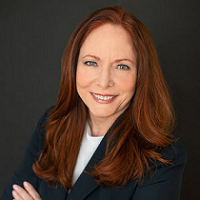 By Pamela J. Gallagher, Founder/CEO, Gallaghers Resulting, LLC
By Pamela J. Gallagher, Founder/CEO, Gallaghers Resulting, LLC
LinkedIn: Pamela J. Gallagher, CPA, DBA
X: @GResulting
Like most people, I am signed up for a savings card from my grocery store. After all, who doesn’t want to save a few dollars on their already-expensive groceries each week, just by scanning your card at checkout?
Years ago, I bought a container of Nesquik from my grocery store. A few weeks after my purchase, I received a text, phone call, and email message notifying me that the product had been recalled. It’s clear that my savings card was doing more than just saving me money; it was also saving my purchasing information.
The situation made me consider: Is the use of my personal information by my grocery store a net gain because it can be used, like in this example, as a safety measure? Or is the tracking of purchasing patterns and the use of my contact information an invasion of my privacy?
Compared to a grocery store, the healthcare industry holds vastly greater amounts of sensitive personal information. Questions of how to balance convenience and privacy is essential for the health of our industry. Thinking about these complex issues makes us, at an individual level, more informed patients and consumers, and more ethical, thoughtful organizations and leaders as well.
Who owns your data?
Who owns your email address, purchasing data, info about online habits, or search data, for example? It’s not solely the individual anymore. From phones that can capture our conversations, to patient data, to Google browsing, to information given in surveys, it is important to consider who owns this data and where it is going. Where is it stored, and who can access it? What will be done with my information, and why is it worth something to this organization? People need to be asking these questions as they consider their consumer behavior.
As the healthcare industry considers innovations such as audio recordings in exam rooms so patients can play back a conversation with their doctor after their appointment, or increasing investment in medical research, these questions are essential for leaders to be asking in order to avoid data breaches and handle sensitive information in a way that does more good than harm.
What is the “right amount” of privacy?
The answer to this question depends on who you are asking, and from individual to individual there is a wide range of answers. Smart phone apps, for example, have begun offering clear opportunities to “opt out” of info sharing, but what does it mean to “opt out?” What information specifically is off limits? What conveniences will a consumer gain or lose by opting out?
How does a hospital manage such a wide range of comfortability with sharing personal and health data? Though hospitals are “de-identifying” patient info, they are still profiting off their patients’ data. How does this practice hold up to ethical considerations? What does it mean to think of ourselves as stewards of our patients’ information?
The lines between modern convenience and invasion of privacy are increasingly blurry. Individuals and organizations alike must question the sharing and use of personal data in order to act wisely and ethically in the marketplace.
This article was originally published on Gallaghers Resulting blog and is republished here with permission.
